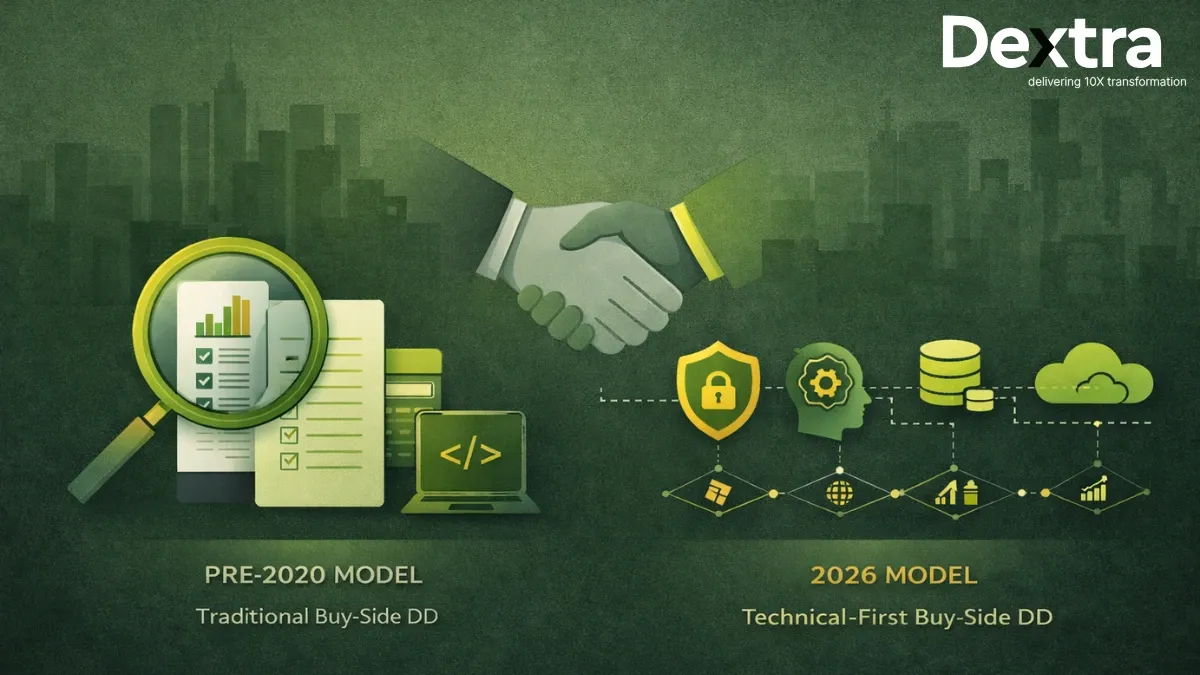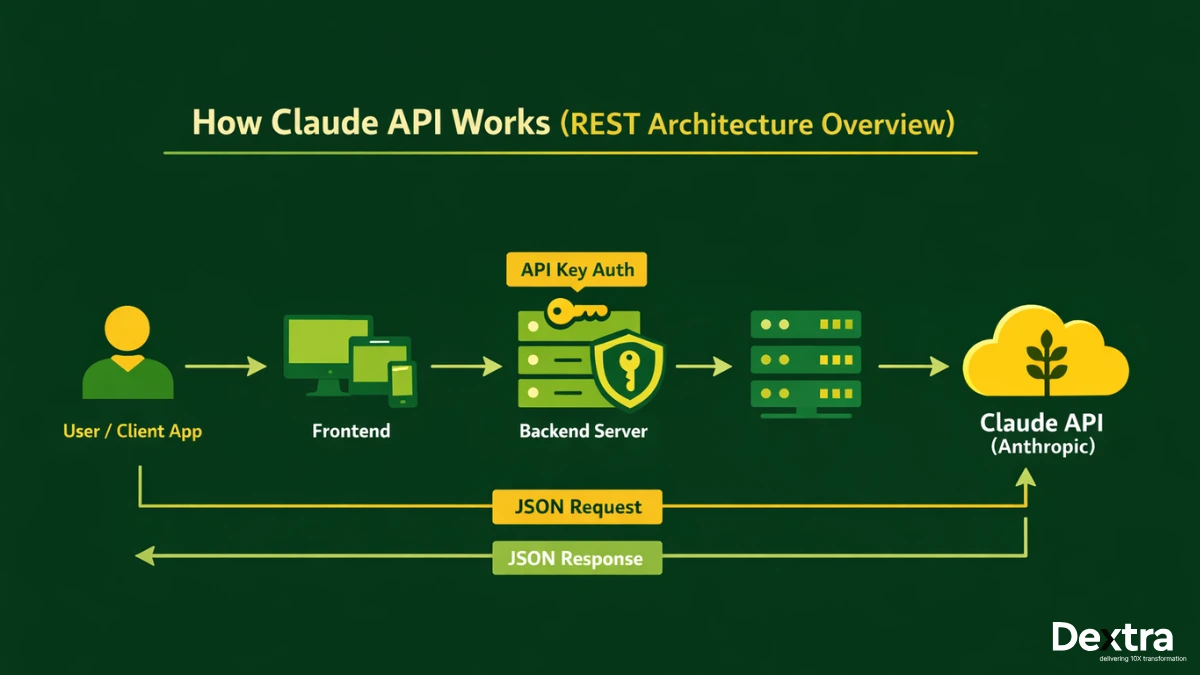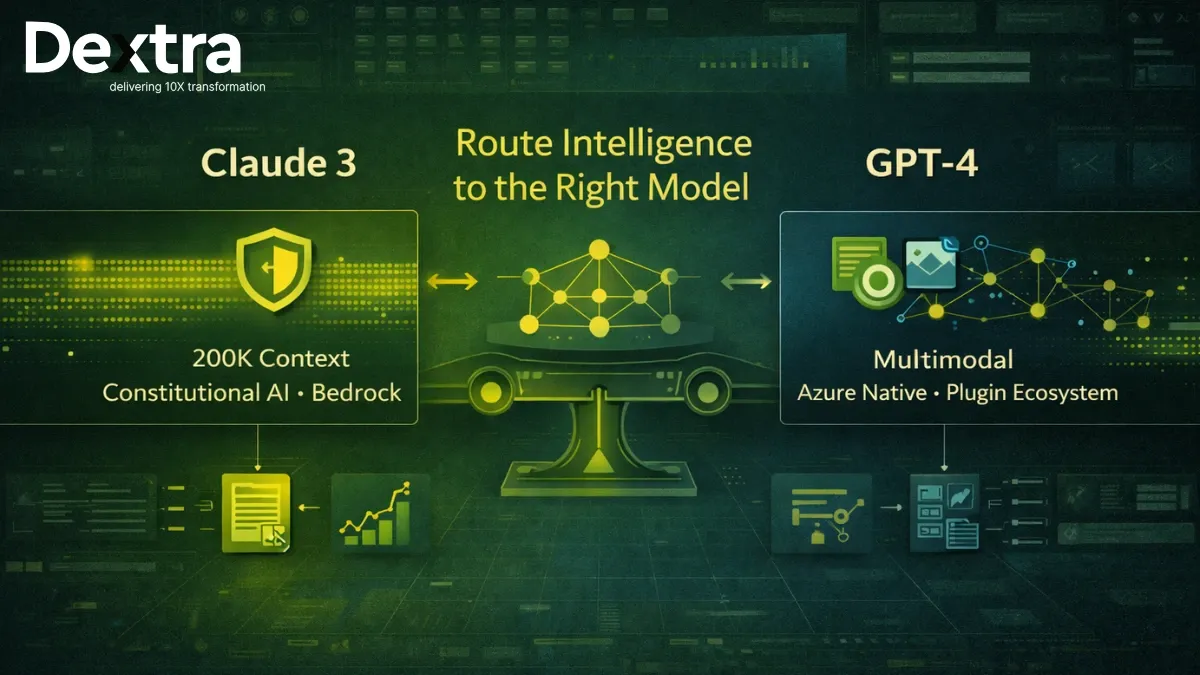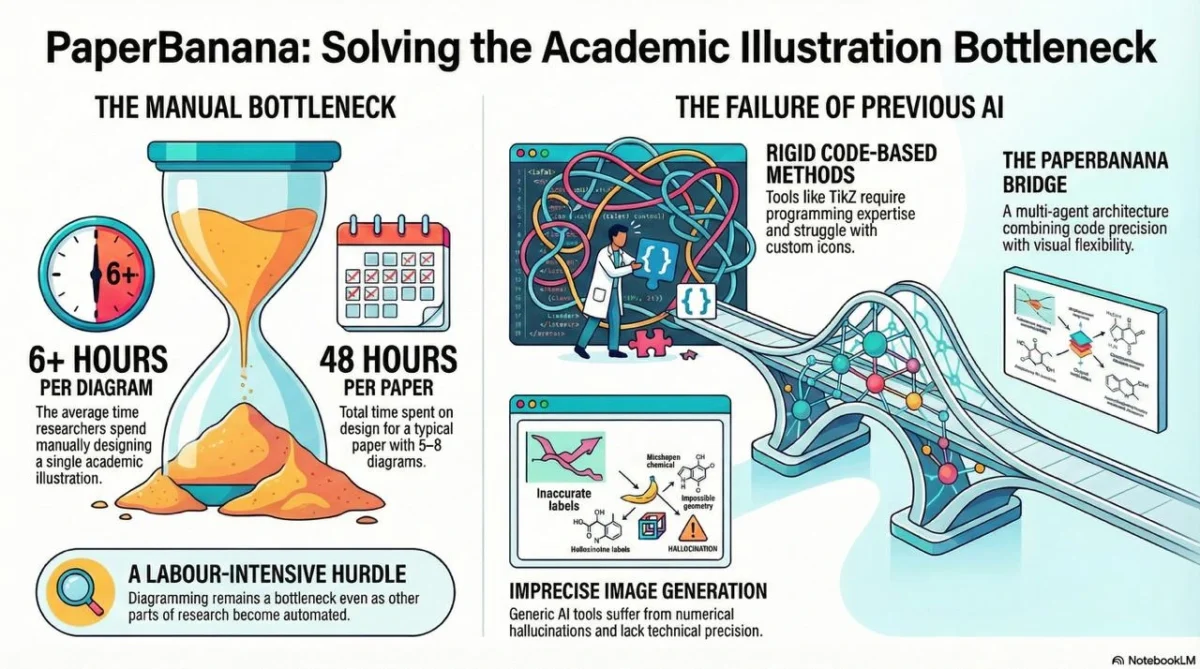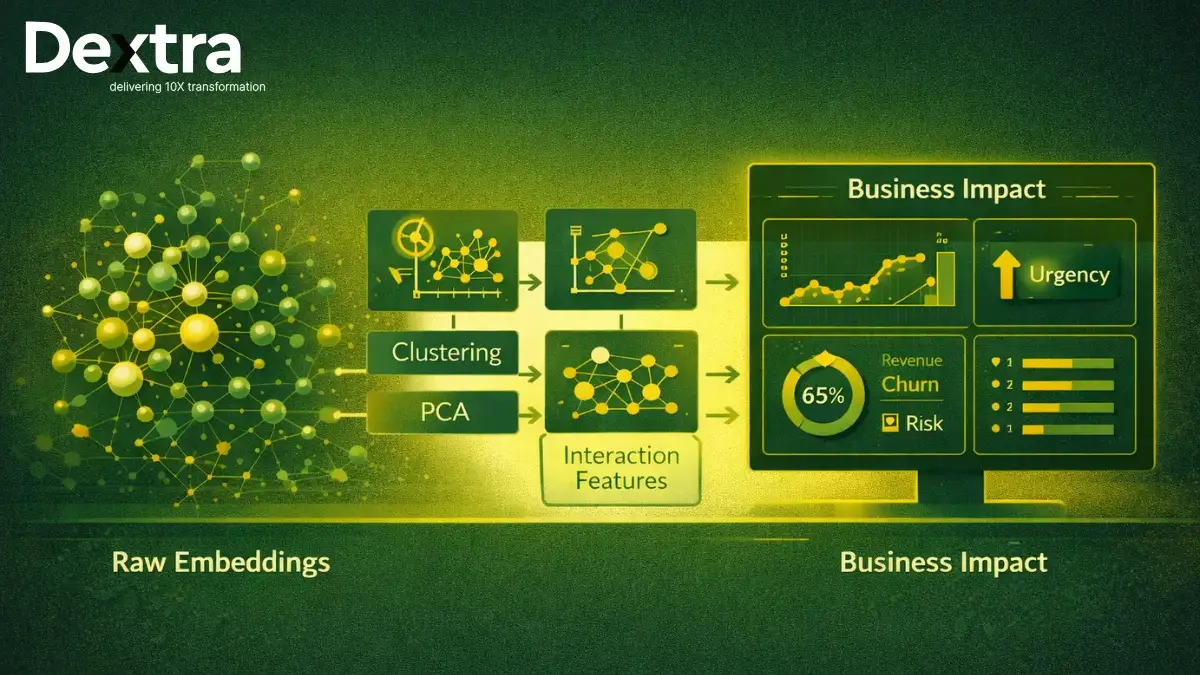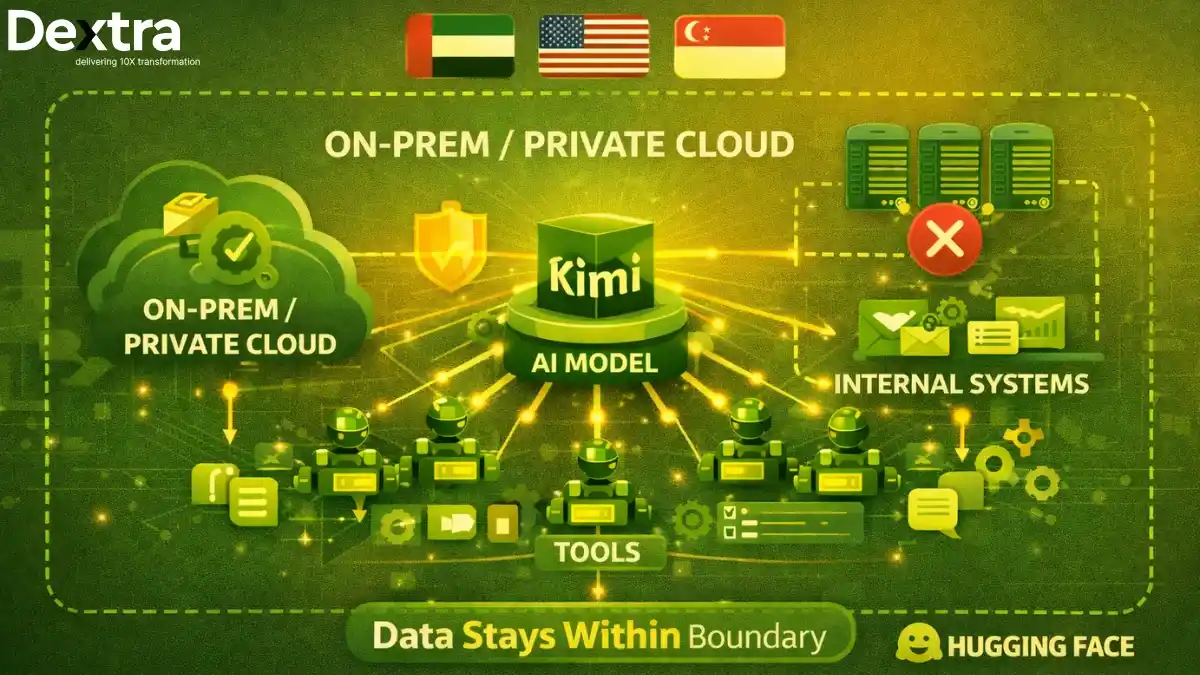When investors evaluate a startup, the technical side often reveals more than a pitch deck ever could. Yet, most early-stage companies don’t have the luxury of a full-time CTO or CFO to guide them through technical due diligence. That’s where the problem begins.
As per Dextralabs’ study, 72% of CEOs plan to increase their use of fractional executives in 2024, signaling a growing shift toward tapping part-time experts like fractional CTOs and CFOs to bridge these gaps during critical events.
The risk of skipping or mishandling this step is steep. A staggering 76% of technology acquisitions fail to meet their financial objectives, often due to overlooked flaws in code quality, scalability, or tech alignment with business goals. Without a clear view of the product’s technical foundation and its financial viability, even the most promising deals can unravel.
This is where the role of fractional CTO in tech DD becomes essential. Supported by a fractional CFO, they offer targeted expertise, unbiased insights, and a flexible engagement model that helps both startups and investors make better decisions.
Our other study says, Companies that conduct thorough tech due diligence on a target’s technology are 2.8 times more likely to achieve a successful outcome. In this guide, we break down how fractional CTO due diligence works and why combining technical and financial expertise could be the smartest investment your startup makes before seeking outside capital.
Ready to Minimize Investment Risk with Expert Tech Insights?
Partner with Dextralabs, the leading tech dd agency, and get top-tier fractional CTOs and CFOs who uncover what truly drives tech performance.
Book a Free ConsultationWhat Is Technical Due Diligence and Why It Matters in Today’s Deals?
Technology is involved in nearly every transaction – mergers, acquisitions, investments. The growing role of tech means that assessing the technology behind a business is now more important than ever.
Tech due diligence (tech DD) involves an independent and detailed audit of a company’s tech stack, including the quality of the code, the decision-making logic, and identifying any risks that could impact the investment. By conducting tech DD, you get transparency into what you are actually purchasing or investing in, so you aren’t caught off guard later.
It’s more important than ever to do a thorough assessment before making big decisions, especially as businesses keep getting more tech-focused. If your business depends on technology, even small issues like poor code quality or hidden security holes can turn into major risks down the line.
That’s where business consultants like fractional CTOs and CFOs come in. They’ll walk you through the tech due diligence process, allowing you to make informed and smarter decisions. Ultimately, they’re invested in protecting your investment and showcasing the best opportunities for growth.
Role of Fractional CTO in Tech DD:
The role of fractional CTO in tech DD is very important. They offer expert insights that help assess, manage, and optimize the technological aspects of a business deal.
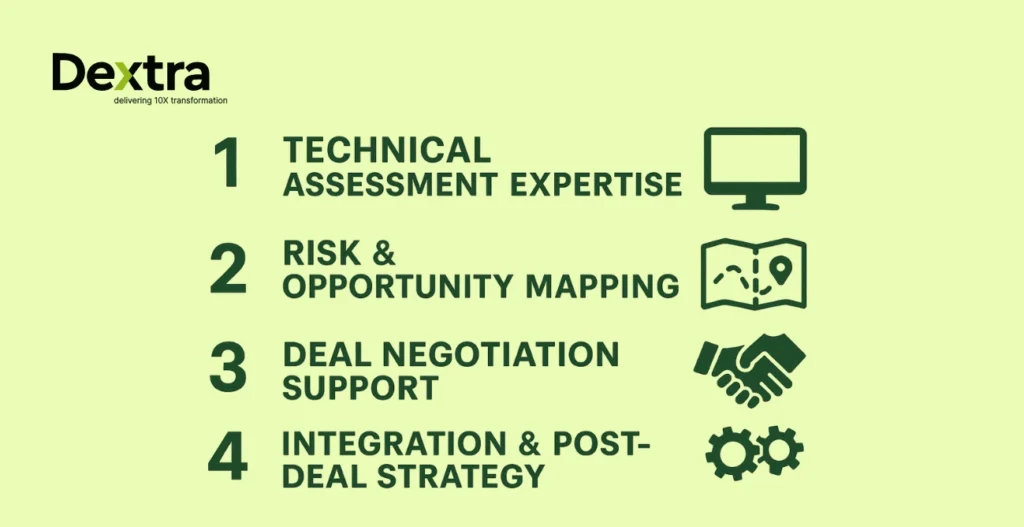
1. Technical Assessment Expertise
- The fractional CTO does an evaluation of the company’s architecture, tech stack, and scalability to guarantee that the systems can grow with the company.
- They look at DevOps, cybersecurity, and data policies to ensure the company is secure, efficient, and compliant.
2. Risk & Opportunity Mapping
- The fractional CTO spots tech debt, vulnerabilities, and inefficiencies that could cause problems later.
- They identify scalable features and areas for innovation to help the company grow and improve.
3. Deal Negotiation Support
- Their tech insights give you a stronger position during negotiations by highlighting potential risks or opportunities.
- If issues are found, they can recommend price adjustments or add contract clauses to protect the deal.
4. Integration & Post-Deal Strategy
- The fractional CTO plans how to merge both companies’ tech systems smoothly after the deal.
- They ensure both companies’ culture and tech teams align for a successful integration.
- They also evaluate the costs and efforts required to merge the tech side of both companies.
Why Fractional CTOs Are Ideal for Due Diligence?
A fractional CTO gives you a fresh, unbiased view during the due diligence process. Since they’re not part of your day-to-day team, they can look at things clearly and spot tech risks or inefficiencies that you or your team might miss.
They’re experts at quickly going through audits or gathering the right information, so the due diligence process doesn’t slow down your deal. When you’re short on time, their ability to think fast and work efficiently is a huge advantage.
Hiring a fractional CTO is also more cost-effective than bringing in a full-time executive. You get high-level expertise without the long-term commitment, making it a smart financial choice.
On top of that, fractional CTOs often have experience working globally, including in key markets like the USA and Singapore. This means they can easily adapt to local business needs while applying their knowledge of global tech best practices, helping you make better decisions in your deal.
The Overlooked Hero: CFO Due Diligence in Tech-Centric Deals
When it comes to tech-driven deals, we know a CFO plays a key role in making sure everything adds up financially. While everyone else might focus on the technology itself, the CFO’s due diligence process helps you get a clear picture of the financial side of those tech assets, making sure you’re not missing any hidden costs or risks.
A. Financial Evaluation of Tech Assets
The CFO takes a close look at things like IP valuations, amortization, and tech investments to figure out the true value of the company’s tech assets. They’re also checking how CapEx (capital expenditures) and OpEx (operational expenses) line up with the company’s tech strategies to make sure those investments are sustainable and support the long-term goals.
B. Budgeting for Tech Integration & Risks
A CFO helps estimate hidden tech liabilities, such as outdated licenses or vendor lock-ins, which could become costly in the future. They also plan for any post-deal system upgrades and consider the talent needs that come with integrating the tech, ensuring the company is set up for success after the deal closes.
Tech Experts for Audit: Collaborating with Business Consultants
When you’re doing a tech audit, working with the right team is key. When it comes to tech audits, consultants and fractional CTOs/CFOs work together to form a powerful team that ensures every aspect of the tech side of the deal is covered. Consultants help with business strategy, while fractional CTOs and CFOs bring strong technical and financial knowledge. When all these skills are put together, we can quickly find risks, spot new opportunities, and come up with the right solutions. By working with both business and tech experts, you get the full picture, and that’s how your business works and how the technology behind it can support your goals.
They are experts at developing customized audit frameworks to match the size and type of the deal in order to suit the audit to your needs. Furthermore, they mitigate and manage communications between the investors, founders, and auditors to ensure that there is clear communication every step of the way, so the process does not stall for any reason.
Use Cases: When to Bring in a Fractional CTO or CFO?
- Pre-Acquisition Due Diligence: If you’re looking at acquiring a tech-driven company, a fractional CTO can help evaluate the technology to identify potential risks and opportunities before making the deal.
- Fundraising Rounds for Tech Startups: When you’re trying to raise money for your tech startup, a fractional CFO can help handle the numbers. They’ll make sure your financial story makes sense and shows your tech spending in the best way for investors.
- Partnerships or Joint Ventures Involving Tech Platforms: If you’re starting a partnership or joint project that uses complex technology, a fractional CTO can review the tech and help you make smart choices so things run smoothly.
- Digital Transformation Consulting for Traditional Companies: When a traditional company wants to use newer technology, a fractional CTO can lead the way. They’ll help the team add new tools and make the business run better.
Conclusion: Strategic Tech Due Diligence Requires the Right Experts
The right fractional CTO and CFO can make or break the deal and your eventual success. They know tech and finance and can help elucidate both the opportunity and risk, which in the end, helps you make better decisions. By focusing on the technical and finance aspects, they are more likely to help you find potential red flags earlier than later.
As a business consultant, you’ll always want to consider fractional experts as an option. They bring the skills and expertise you’re looking for, without the need to hire someone full-time. Fractional folks can focus on the specific projects you need help with and give recommendations that really fit your needs all leading to a smoother, more successful deal.
Don’t Leave Your Investment Decisions to Guesswork.
Choose Dextralabs—your trusted partner for comprehensive technical due diligence powered by experienced fractional CTOs and CFOs. Book your consultation today!
Book a Free ConsultationFAQs:
Q. Why should startups or SMEs hire fractional CTOs and CFOs instead of full-time executives during due diligence?
Hiring fractional executives provides access to senior-level expertise at a fraction of the cost. Startups and SMEs benefit from their strategic insights and experience without the long-term commitment, making due diligence more efficient and cost-effective.
Q. What key areas do fractional CTOs focus on during a technical due diligence review?
They typically examine code quality, product roadmap, scalability of the tech stack, DevOps practices, compliance with industry standards, third-party dependencies, and the strength of the tech team.
Q. Can fractional CTOs and CFOs work together in the due diligence process?
Absolutely. When working together, they offer a holistic assessment—ensuring the technical capabilities align with financial performance, cost structures, and strategic growth plans. This synergy improves the accuracy of risk assessment and investment decisions.
Q. How early in the investment process should a fractional CTO or CFO be involved?
Ideally, they should be brought in during the early stages of due diligence—before term sheets are finalized. Early involvement allows them to uncover red flags, validate business and tech claims, and support better negotiation for both investors and founders.
Q. Do fractional executives provide post-due diligence support?
Yes, many fractional CTOs and CFOs offer post-due diligence support by helping implement recommended changes, optimizing financial or tech strategies, and assisting in scaling operations post-investment.
Q. How do investors benefit from involving fractional CTOs and CFOs in due diligence?
Investors gain unbiased, third-party assessments of a company’s technological and financial health. This reduces the risk of overvaluation, exposes hidden liabilities, and ensures their capital is deployed into a scalable and sustainable business.


